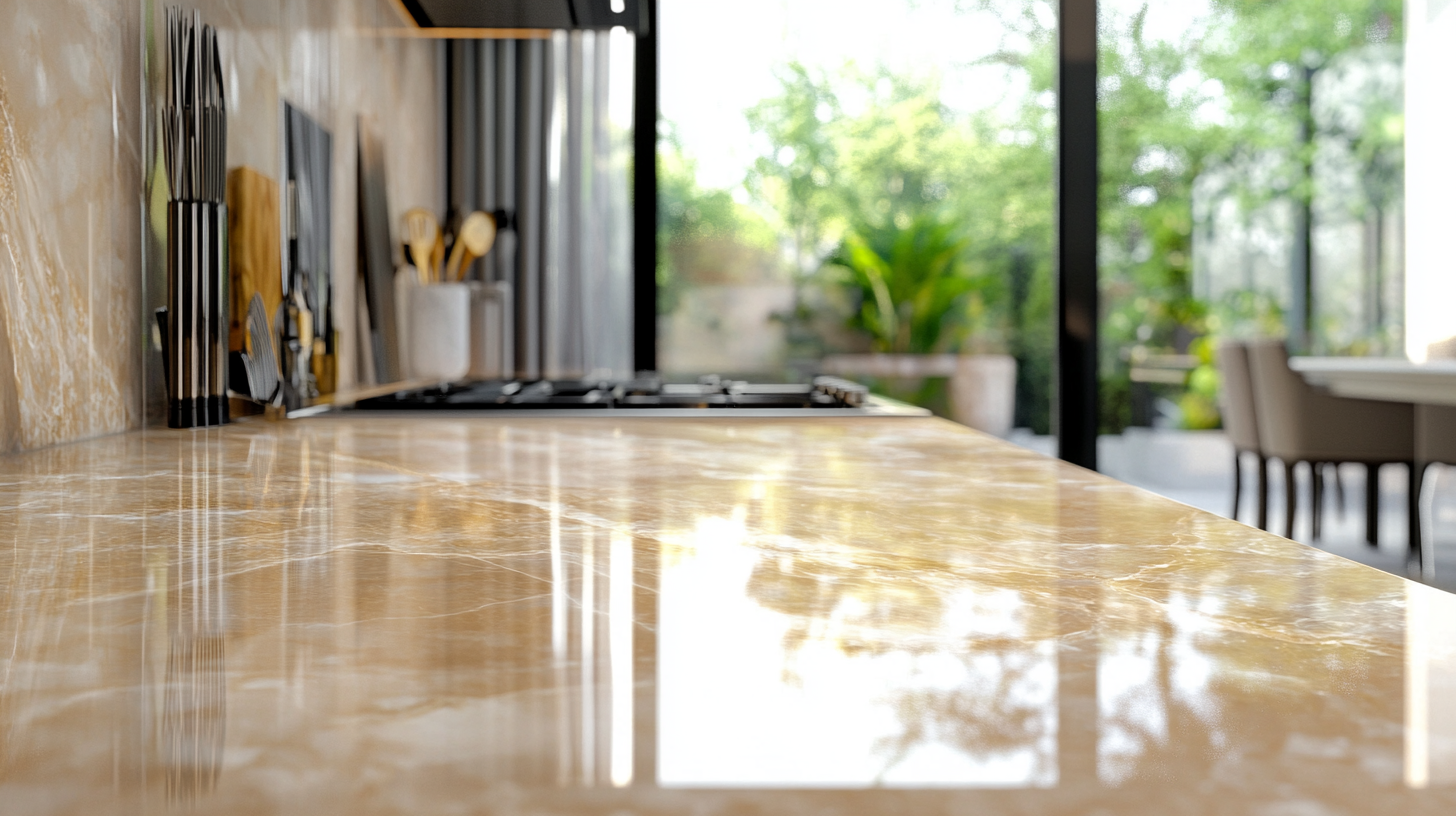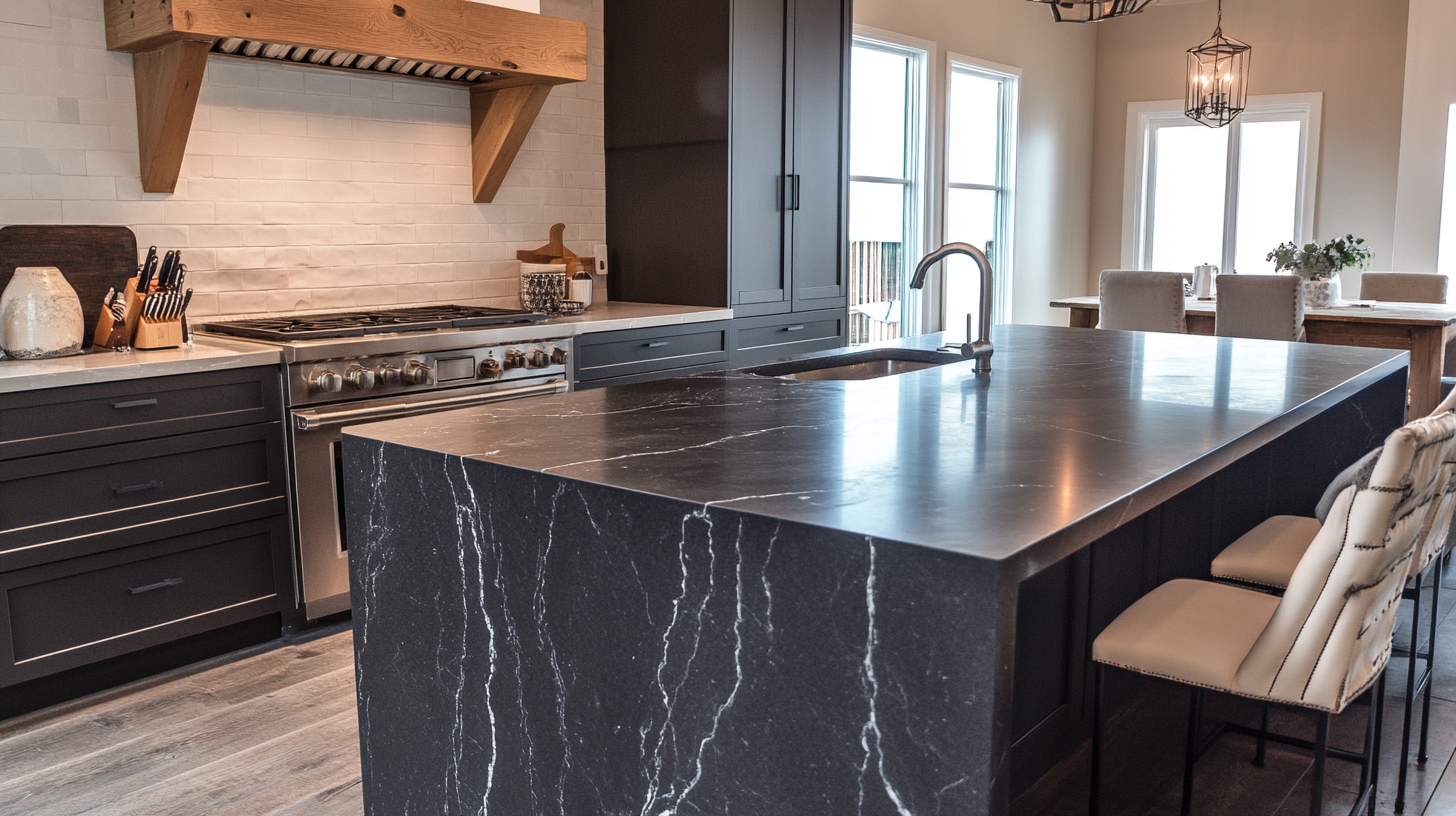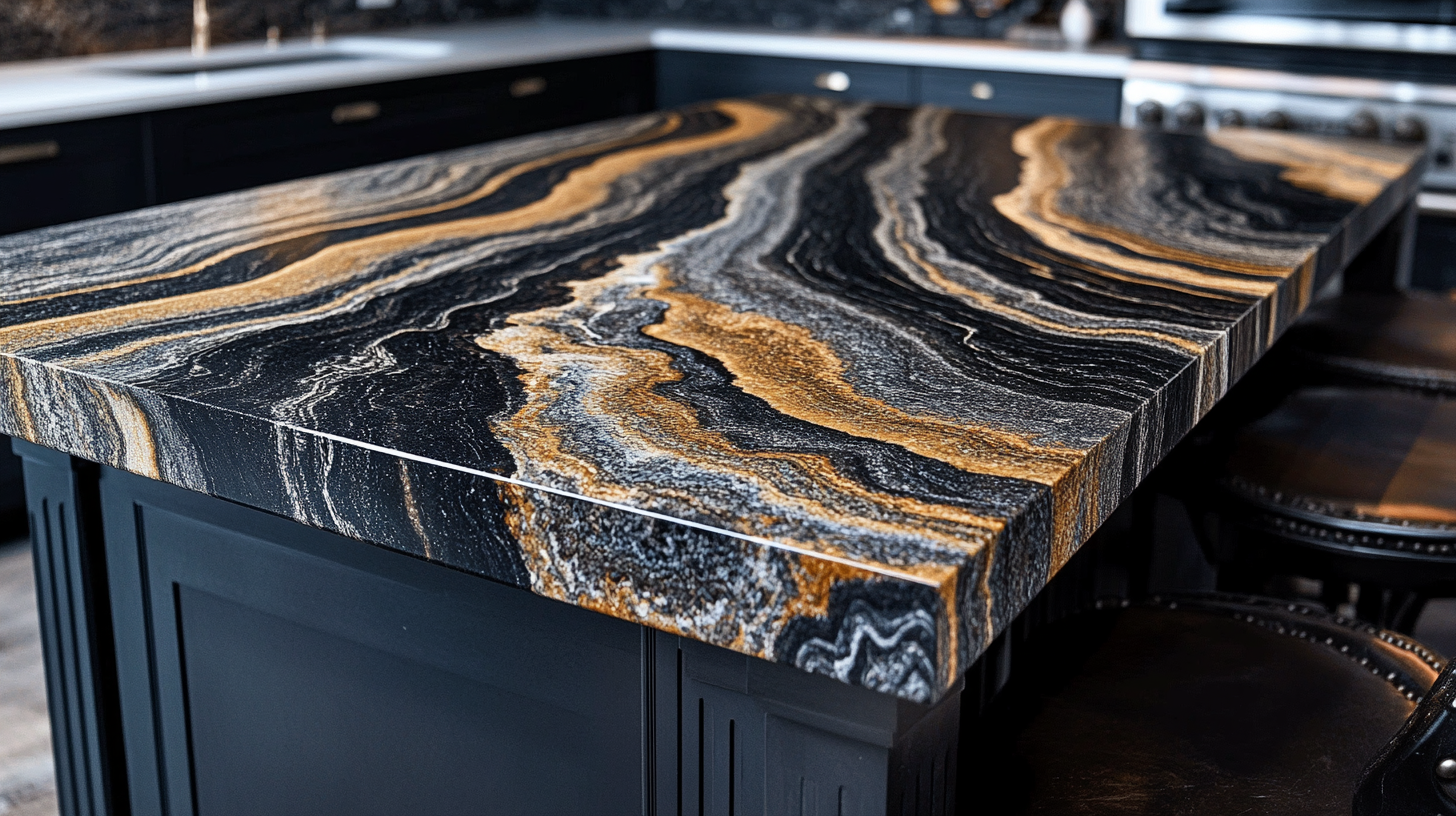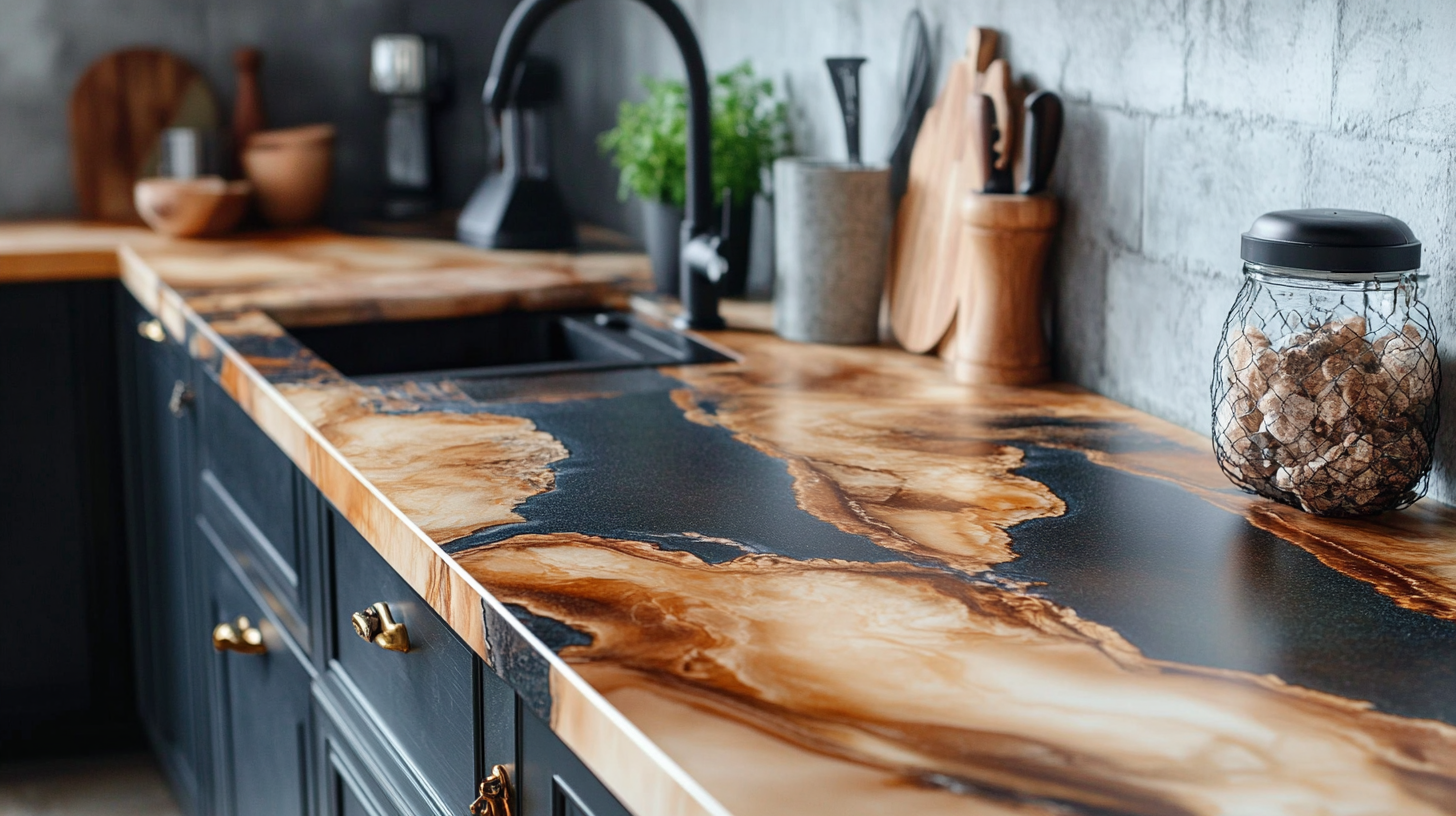Blog
Exploring Unique Choices Beyond Solid Surface Countertops for Your Next Project
When it comes to designing or renovating your space, countertops play a pivotal role in both aesthetics and functionality. Traditionally, many homeowners gravitate towards Solid Surface Countertops for their uniform appearance and durability. However, with a myriad of materials and styles available today, there is ample opportunity to explore unique choices that can elevate your project beyond these conventional options.
In this blog, we will delve into some exciting alternatives to Solid Surface Countertops that not only provide distinct visual appeal but also cater to various practical needs. From eco-friendly choices to luxurious natural stones, we aim to inspire your creativity and guide you in selecting the perfect countertop material that aligns with your vision and lifestyle. By stepping outside the realm of traditional surfaces, you can create a truly personalized space that reflects your individual taste and meets the demands of modern living.

Innovative Natural Stone Alternatives for Countertops
When it comes to choosing countertops for your next project, the landscape is evolving with innovative natural stone alternatives that offer both aesthetic appeal and environmental benefits. The engineered stone market is currently flourishing, valued at over $23 billion in 2022, and projected to experience steady growth. This surge signifies not only a shift in consumer preferences towards sustainable materials but also an increased awareness of the transformative power of engineering in natural stone applications. One standout in this realm is the emergence of new materials like revolutionary natural stone veneers that blend traditional beauty with modern technology. These innovations redefine design possibilities, making it easier to incorporate natural textures and sustainable practices into homes and commercial spaces alike. As consumers seek to minimize their ecological footprint, engineered stone and natural alternatives provide viable options that do not compromise on style or functionality. Additionally, trends are shifting towards materials that reflect individuality and creativity. This move is echoed in related industries, as we see a growing appreciation for lab-grown alternatives, extending the concept of sustainability into various sectors. As homeowners and designers explore unique choices for countertops, the integration of these innovative materials will not only elevate aesthetics but also contribute positively to the environment, paving the way for a more sustainable future in interior design.

The Rise of Recycled Materials in Sustainable Countertops
As consumers increasingly prioritize sustainability in their home design choices, the countertop landscape is shifting dramatically. The rise of recycled materials is becoming a critical trend for homeowners looking to make eco-conscious decisions. Innovative materials, like recycled paper countertops, exemplify this movement by transforming post-consumer waste into stylish and functional surfaces. This not only helps reduce landfill waste but also showcases the potential of everyday items to contribute to sustainable living.
In 2025, we expect to see an even greater emphasis on unique, sustainable countertop options. Traditional materials like quartz, despite their durability, harbor hidden dangers such as silica dust exposure. As awareness of these issues grows, many homeowners are turning to greener alternatives that not only offer aesthetic appeal but also contribute to a healthier living environment. This shift empowers consumers to make informed choices that align with their ethical values while still achieving the modern look they desire.
Embracing sustainable elegance means rethinking every aspect of our spaces, including the countertops we choose. With a variety of eco-friendly materials available, from reclaimed wood to artistic concrete blends, our kitchen designs can reflect not only our personal styles but also a commitment to sustainability. As we look to the future, it's clear that the countertops of tomorrow will be defined by both bold design and an unwavering dedication to environmental responsibility.

Exploring Engineered Quartz: Beauty Meets Durability
Engineered quartz has become a popular choice for homeowners and designers alike, combining aesthetic appeal with remarkable durability. According to a recent report by the National Kitchen & Bath Association, approximately 70% of homeowners consider engineered quartz countertops for their kitchen renovations, citing both its stunning visual options and robustness. Engineered quartz is made from crushed natural stone combined with resins, leading to a non-porous surface that resists staining, scratching, and chipping—qualities that are essential for high-traffic areas in the home.
Moreover, the versatility of engineered quartz in design cannot be overstated. Available in a myriad of colors and patterns, it can mimic the look of natural stones like granite and marble while offering consistent quality and low maintenance. A study by the International Surface Fabricators Association highlights that 88% of fabricators endorse engineered quartz for its ease of installation and premium finish, making it a go-to material for modern kitchen and bathroom designs. This accessibility allows for seamless integration into various interior styles, from contemporary to rustic.
Furthermore, choosing engineered quartz contributes to sustainability efforts without sacrificing quality. Many manufacturers are now producing quartz surfaces with recycled materials, aligning with an increasing consumer demand for eco-friendly products. According to a report by Allied Market Research, the global market for engineered stone is expected to grow by 5.6% annually through 2027, primarily driven by the rising popularity of sustainable and aesthetic building materials. This trend indicates not only a shift in consumer preferences but also the industry’s commitment to providing resilient and beautiful options for future projects.

Charming Wood Surfaces: A Warm Alternative for Any Design
When considering surfaces for your next project, charming wood surfaces have emerged as a warm and inviting alternative to traditional solid surface countertops. According to a report by the National Kitchen and Bath Association (NKBA), wood surfaces are gaining popularity due to their natural aesthetic and versatility in various design schemes. The innate beauty and character of wood can effortlessly complement a range of styles, from rustic and farmhouse to modern and minimalist.
One of the key benefits of wooden surfaces is their ability to create a welcoming atmosphere in any space. A survey conducted by the American Society of Interior Designers (ASID) revealed that over 65% of designers recommend wood elements in kitchen designs because of their warmth and character. Furthermore, many wood surfaces today are engineered for durability, ensuring they can withstand the rigors of daily use while maintaining their charm.
In addition, eco-conscious consumers are turning to sustainably sourced woods, aligning their design choices with environmental values. Data from the Forest Stewardship Council (FSC) indicates that certified wood options are not only better for the planet but also increasingly preferred in high-end projects, thus enhancing their appeal. As the design landscape evolves, charming wood surfaces stand out as a viable and appealing alternative, marrying aesthetic beauty with functionality.
Stylish Concrete Countertops: Modern Options for Unique Spaces
If you're looking to elevate your kitchen's aesthetic while moving beyond the conventional solid surface countertops, stylish concrete countertops may be the answer. With their modern appeal, concrete surfaces offer an innovative twist that easily adapts to various design preferences. Whether polished for a sleek finish or textured for a more rustic vibe, concrete can effortlessly blend into contemporary spaces while providing durability and unique character.
One of the most exciting aspects of concrete countertops is their versatility in customization. Homeowners can choose from a variety of colors, textures, and finishes to create a truly one-of-a-kind look. This adaptability allows for integration with bold kitchen island designs featuring inviting natural materials or striking color combinations. As homeowners continue to explore options for kitchen islands, concrete stands out as a statement surface that complements both minimalist and eclectic styles.
In addition to their aesthetic benefits, concrete countertops are known for their functionality. Unlike more traditional materials, they can withstand the demands of daily kitchen use while offering a heat-resistant surface that proves beneficial during meal prep. As we embrace innovative designs for 2025, concrete countertops will undoubtedly lead the charge, bringing a unique and modern flair to kitchens seeking individuality and style.

